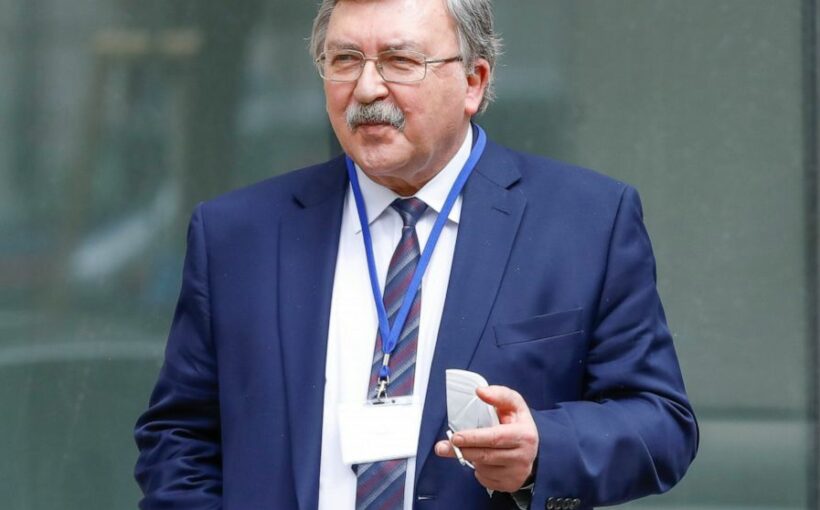BERLIN — Diplomats working in Vienna on a solution to bringing the United States back into the nuclear deal with Iran and world powers are taking a break from talks to consult with their leaders amid continued signs of progress, Russia’s delegate said Tuesday.
Mikhail Ulyanov said after a meeting of the deal’s so-called Joint Commission of senior officials with representatives from France, Germany, Britain, China and Iran that they had noted “with satisfaction of the progress in negotiations to restore the nuclear deal.”
“It was decided to take a break to allow the delegations to do homework and consult with the capitals,” he tweeted. “The Commission will meet again early next week.”
Iran’s delegate, Deputy Foreign Minister Abbas Araghchi, sounded a positive note, telling Iran’s official IRNA news agency that the talks were “moving forward despite difficulties and challenges.”
The U.S. unilaterally pulled out of the deal, known as the Joint Comprehensive Plan of Action, or JCPOA, in 2018 under then President Donald Trump, who said it needed to be renegotiated. Consequently, Washington has not been at the table for the Vienna talks, but an American delegation is in the Austrian capital and representatives of the other powers have been shuttling between it and the Iranian delegation.
The ultimate goal of the deal is to prevent Iran from developing a nuclear bomb, something it insists it doesn’t want to do. Iran now has enough enriched uranium to make a bomb, but nowhere near the amount it had before the nuclear deal was signed, and President Joe Biden has said he wants to bring the U.S. back into the pact.
The two major issues being negotiated are the rollback of American sanctions imposed by Trump’s administration after the withdrawal from the deal, and the return of Iran to compliance with the restrictions imposed by the JCPOA on its nuclear program. Iran has been steadily violating them to pressure the remaining signatories to the deal, so far unsuccessfully, to come up with economic incentives to offset the American sanctions.
Tehran has been insisting that the U.S. lift all sanctions imposed under Trump, including those not related to its nuclear program, while Washington has said Iran needs to comply with all restrictions.
Working groups have been trying to come to solutions for both issues, and the European Union, which chairs the Joint Commission meetings, said a third group was set up Tuesday “to start looking into the possible sequencing of respective matters.”
The EU’s foreign policy chief, Josep Borrell, said Tuesday that he had spoken last week with U.S. Secretary of State Antony Blinken and Iranian Foreign Minister Mohammad Javad Zarif. Borrell said that while he couldn’t go into details, there was “a real goodwill from both parties to reach an agreement, and that is good news.”
“They have been moving from general to more focused issues, which are, clearly, on one side sanctions lifting and, on the other side, nuclear implementation issues,” he said.
Talks have been going on for two weeks in Vienna and there has been no timeline set for a solution, but Ulyanov said optimistically that it might be possible within the next month.
“The process isn’t easy,” he said in an interview that he tweeted a link to Tuesday. “It would be good to finish negotiations successfully within a month. It seems to be doable.”
In Tehran, government spokesman Ali Rabiei said “we still assess the atmosphere of the Vienna talks as positive.”
“We are cautiously hopeful about an understanding for restoring the nuclear deal, but it is too soon yet to express optimism or pessimism about the final result of the consultations,” he said.
Outside the talks in Vienna, however, other challenges remain.
An attack suspected to have been carried out by Israel recently struck Iran’s Natanz nuclear site, causing an unknown amount of damage. Tehran retaliated by beginning to enrich a small amount of uranium up to 60% purity, its highest level ever. Inspections by the International Atomic Energy Agency also could be disrupted without an agreement.
———
Nasser Karimi contributed to this report from Tehran.
Source: Read Full Article
